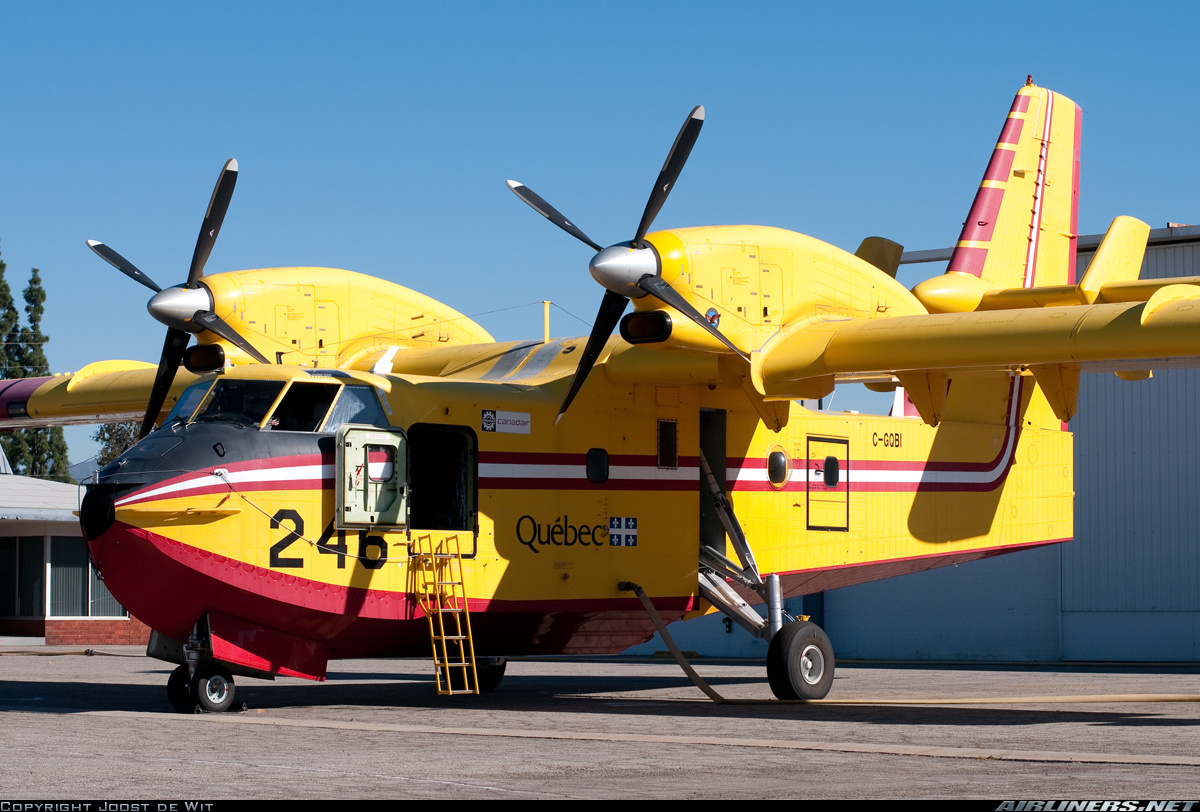
Canadair CL415 (CL2156B11) Government of Quebec Aviation Photo 2744742
A Canadair water bomber flies over Cappahayden, NL, in early June. The CL-215 and the CL-415 models have an international reputation as a tried-and-true aerial firefighting tool, but haven't been.
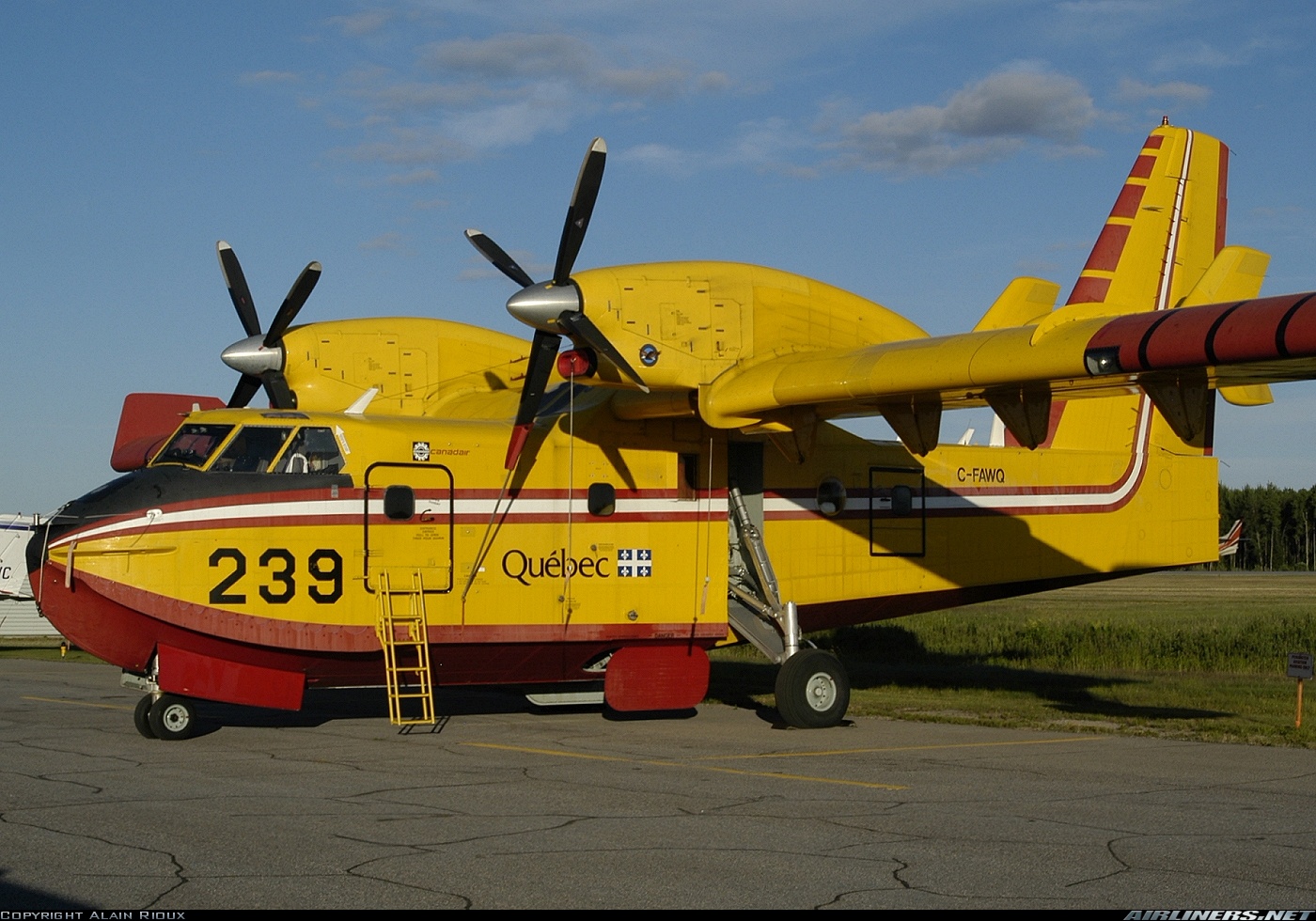
Canadair CL215T (CL2156B11) Government of Quebec Aviation Photo 1117596
CL-215 / CL-415 - Specifications. Hard surface runway is the standard requirement with a runway, taxiway, and ramp capable of supporting 36,000 pounds. Gravel runways may only be used with prior.
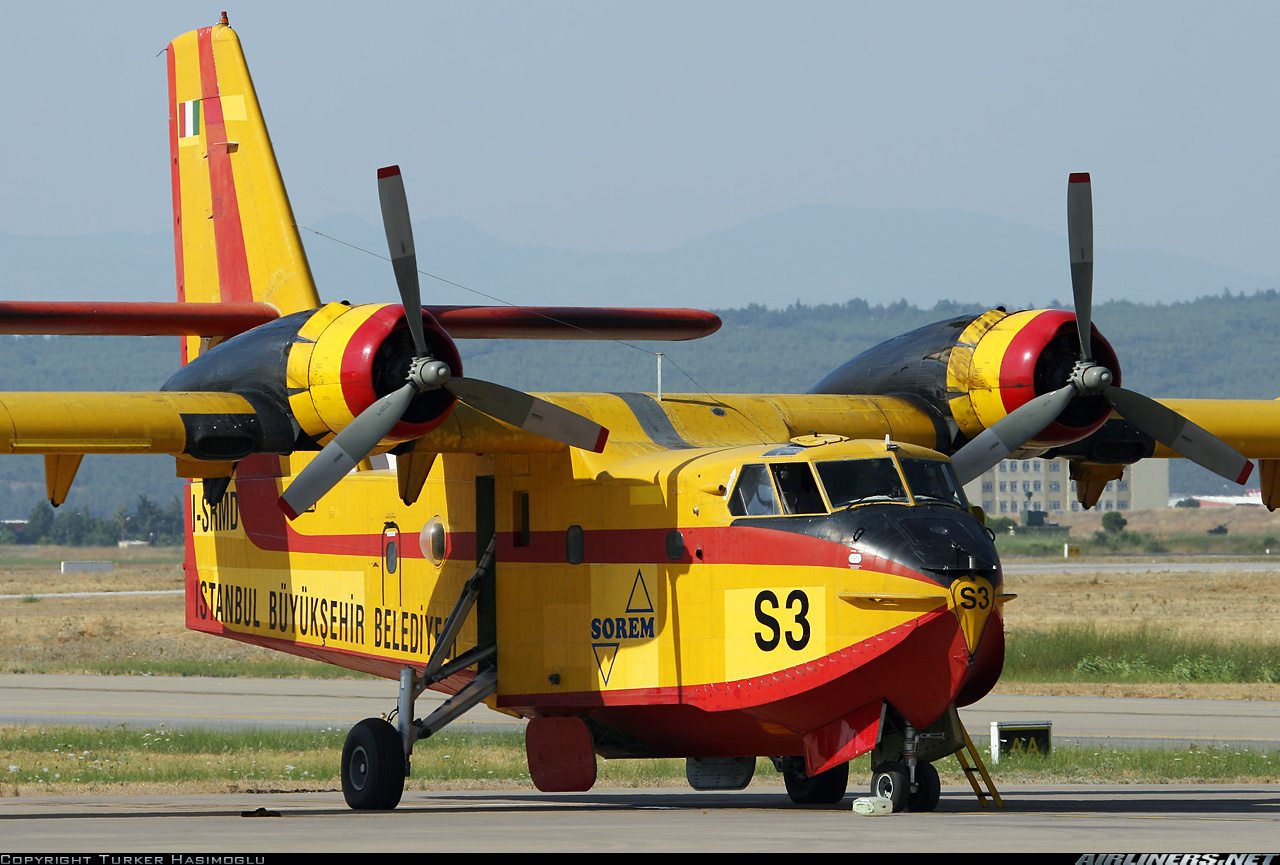
Canadair CL215V (CL2151A10) Sorem Aviation Photo 1380847
First produced in the 1960s, the original Canadair CL-215 firefighting plane was designed for fighting vast fires in the Canadian wilderness. Its unique amphibious design and low-speed control.
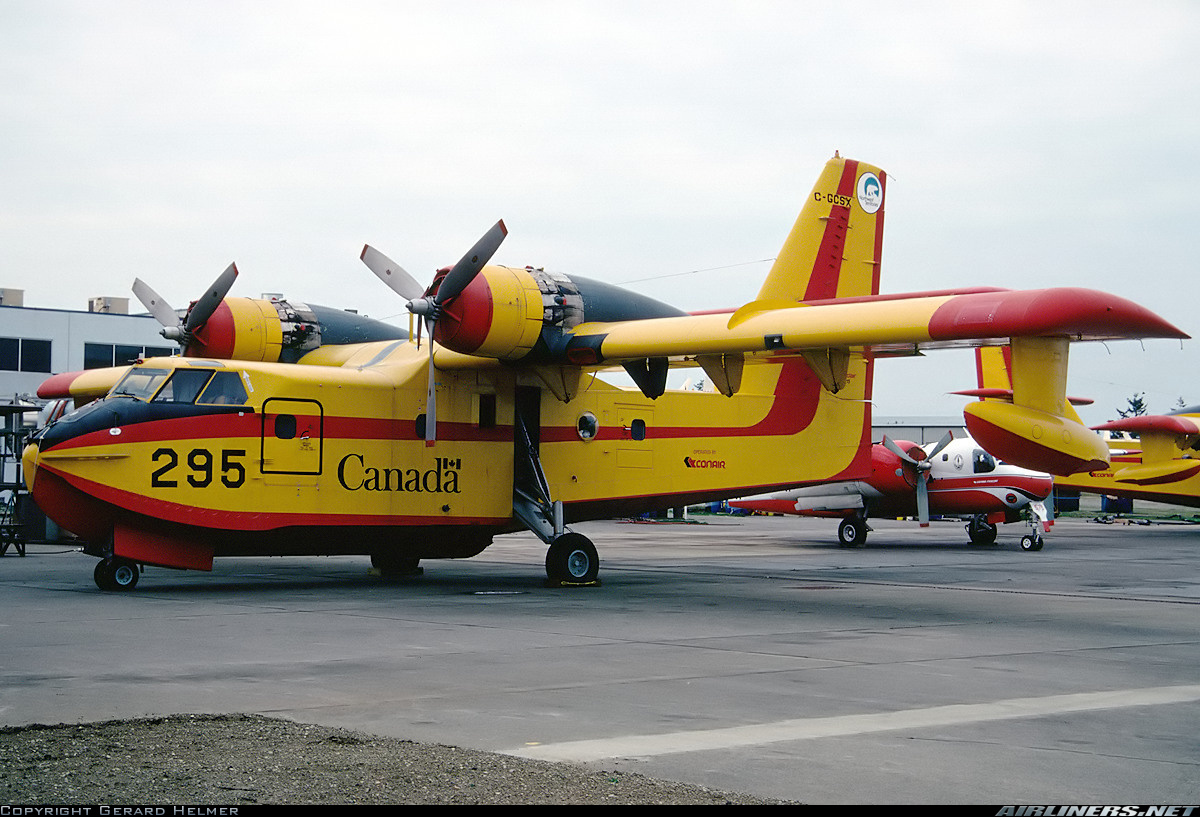
Canadair CL215V (CL2151A10) Conair Aviation Photo 1597284
A small island on a lake in Canada's Northwest Territories (NWT) has been named "Duck Island" after a Canadair CL-215 scooper was stranded there for a couple of months till it was airlifted out by a CH-47 Chinook helicopter owned by Billings Flying Service.. Sometimes called "ducks" for their nimble maneuvering on water, the CL-215 scooper is a twin-engine, high-wing amphibious.
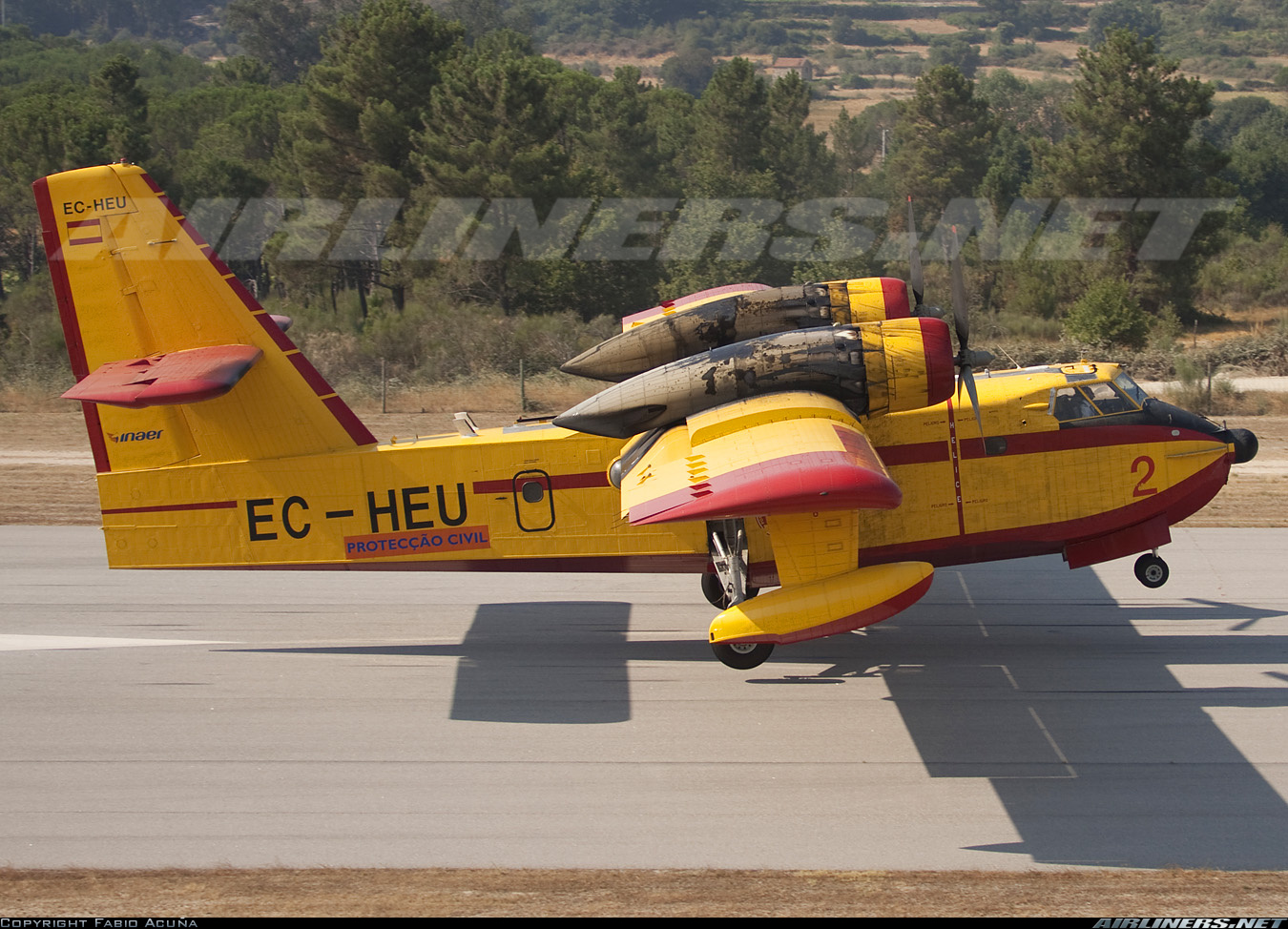
Canadair CL215II (CL2151A10) Inaer Aviation Photo 1771861
The Canadair CL-415 (Super Scooper, later Bombardier 415) and the De Havilland Canada DHC-515 are a series of amphibious aircraft built originally by Canadair and subsequently by Bombardier and Viking Air, and De Havilland Canada.The CL-415 is based on the Canadair CL-215 and is designed specifically for aerial firefighting; it can perform various other roles, such as search and rescue and.
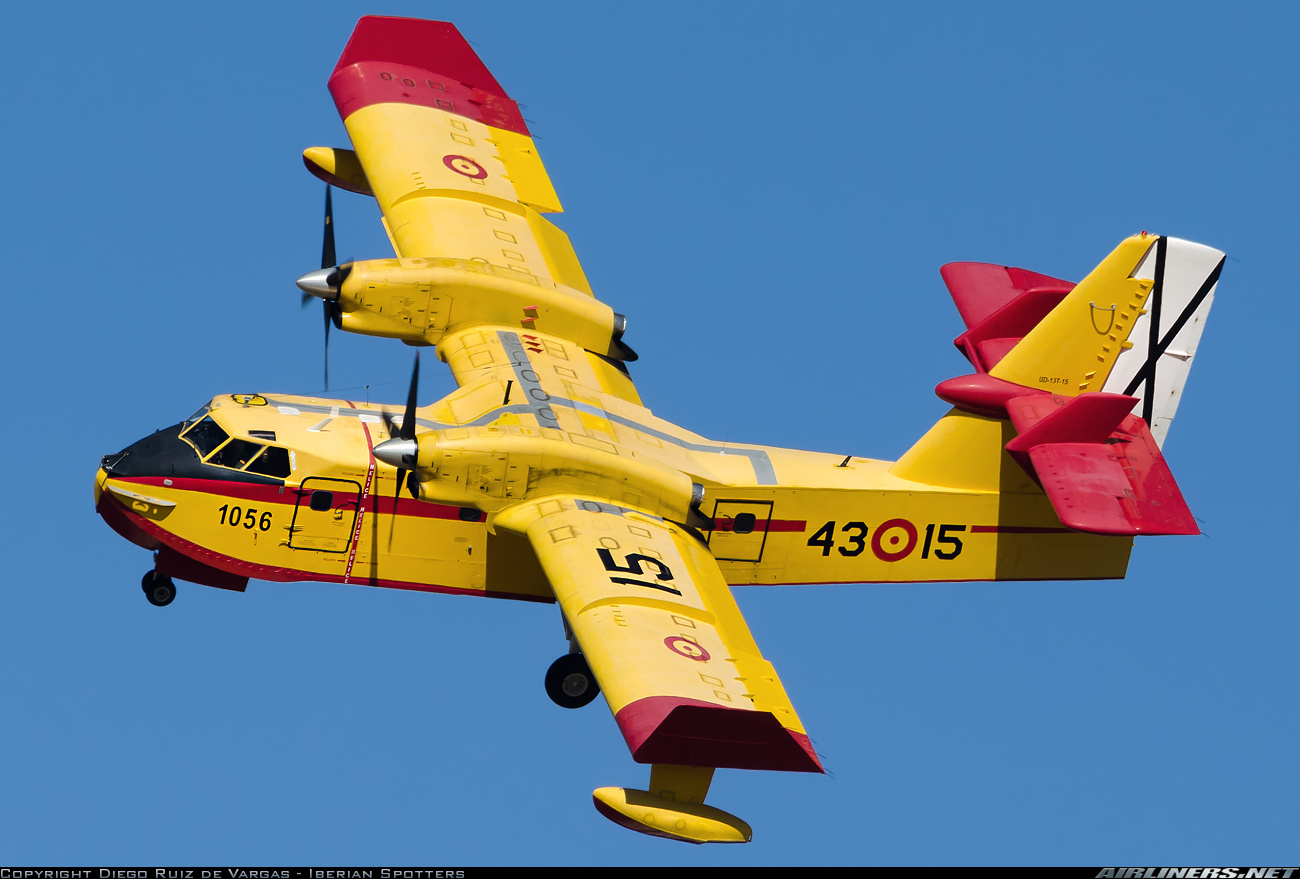
Canadair CL215T (CL2156B11) Spain Air Force Aviation Photo 2729234
The Canadair CL-215 (Scooper) was the first model in a series of firefighting flying boat amphibious aircraft built by Canadair and later Bombardier. The CL-215 is a twin-engine, high-wing aircraft designed to operate well at low speeds and in high gust-loading environments, as are found over forest fires. The CL-215 can be traced back to two early projects by Canadair, the CL-43 and CL-204.
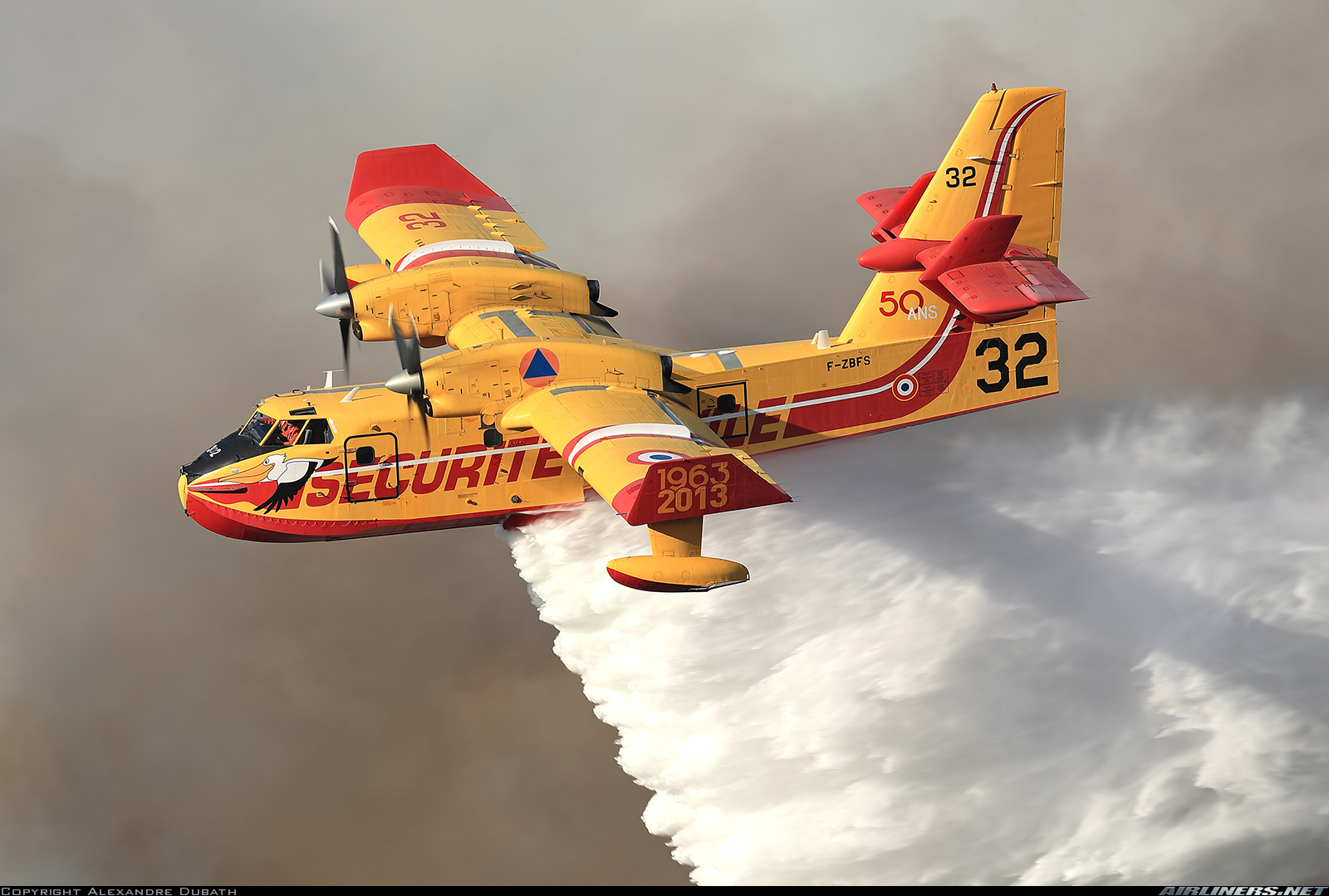
Canadair CL415 (CL2156B11) Government of Quebec barbecue agaz
On 20 June 2016, Canadair announced the sale of the entire programme to Viking Air of Victoria, BC. The deal includes manufacturing and intellectual property rights to both the CL-215 and CL-415 as well as after-sales support. A new-build version, based on the CL-415EAF, is being marketed as the CL-515.
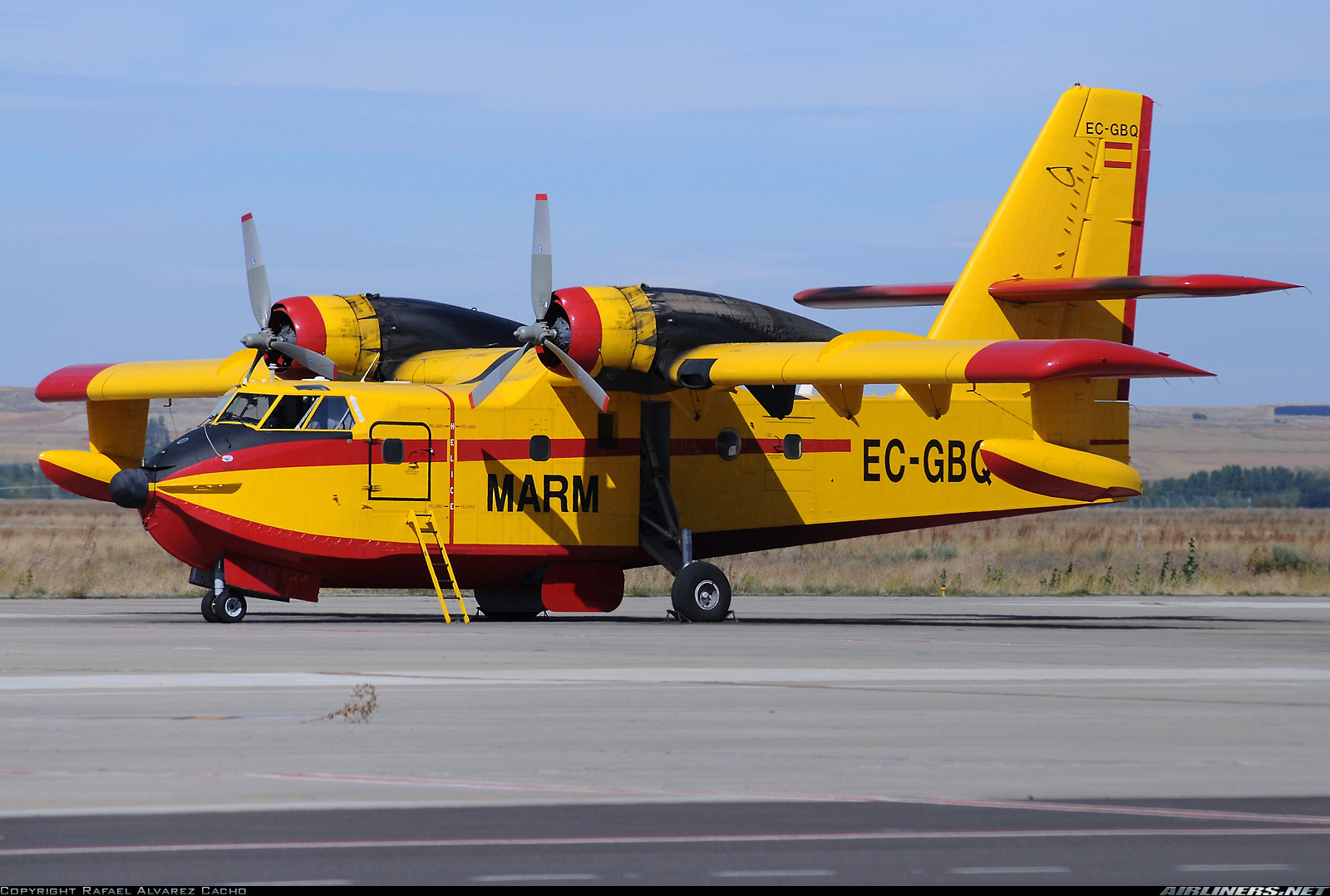
Canadair CL215II (CL2151A10) Inaer Aviation Photo 1801646
A small island on Mitchell Lake in Canada's Northwest Territories (NWT) has been named "Duck Island" after a Canadair CL-215 Scooper aircraft was stranded there for more than two months before being airlifted out by a CH-47 Chinook helicopter. Known as "ducks" for their nimble capabilities on water, the CL-215 aircraft is a twin.
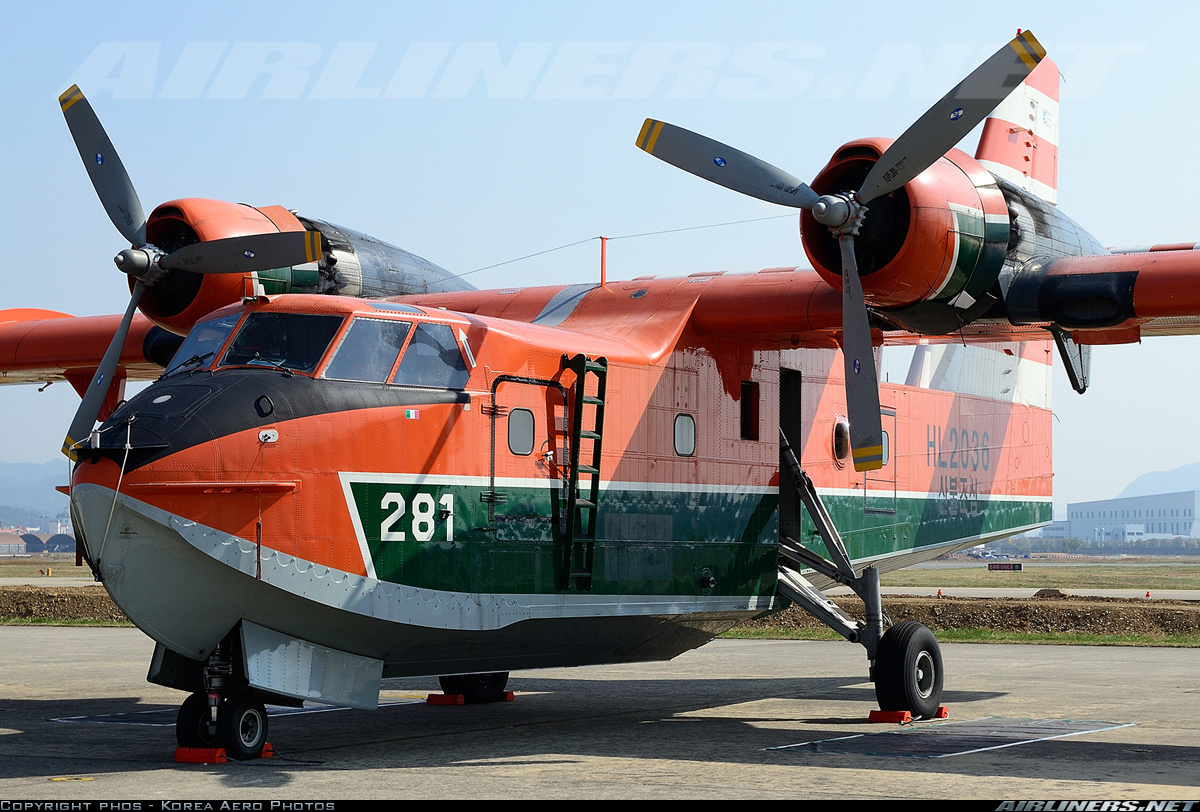
Canadair CL215IV (CL2151A10) KBAS Aviation Photo 2181081
Canadair CL-215. Canadair CL-215, unique amphibious aircraft designed to fight forest fires with water bombing and chemical fire retardants. It can scoop up a load of over 5000 litres of water in 10 seconds while skimming over a body of water, and jettison it over a fire in less than 1 second. It first flew October 1969 and is still in use.

Les débuts difficiles du CL215 deuxième partie Les Ailes du Québec
Case-in-point is the Canadair CL-215, a dedicated "amphibious" aircraft developed specifically (and from the outset) to combat forest fires by dropping vast amounts of water / fire-retarding solutions to contain spread. The aircraft currently (2020) operates with services in Canada, Greece, Italy, Spain, Thailand, Turkey, and the United States.
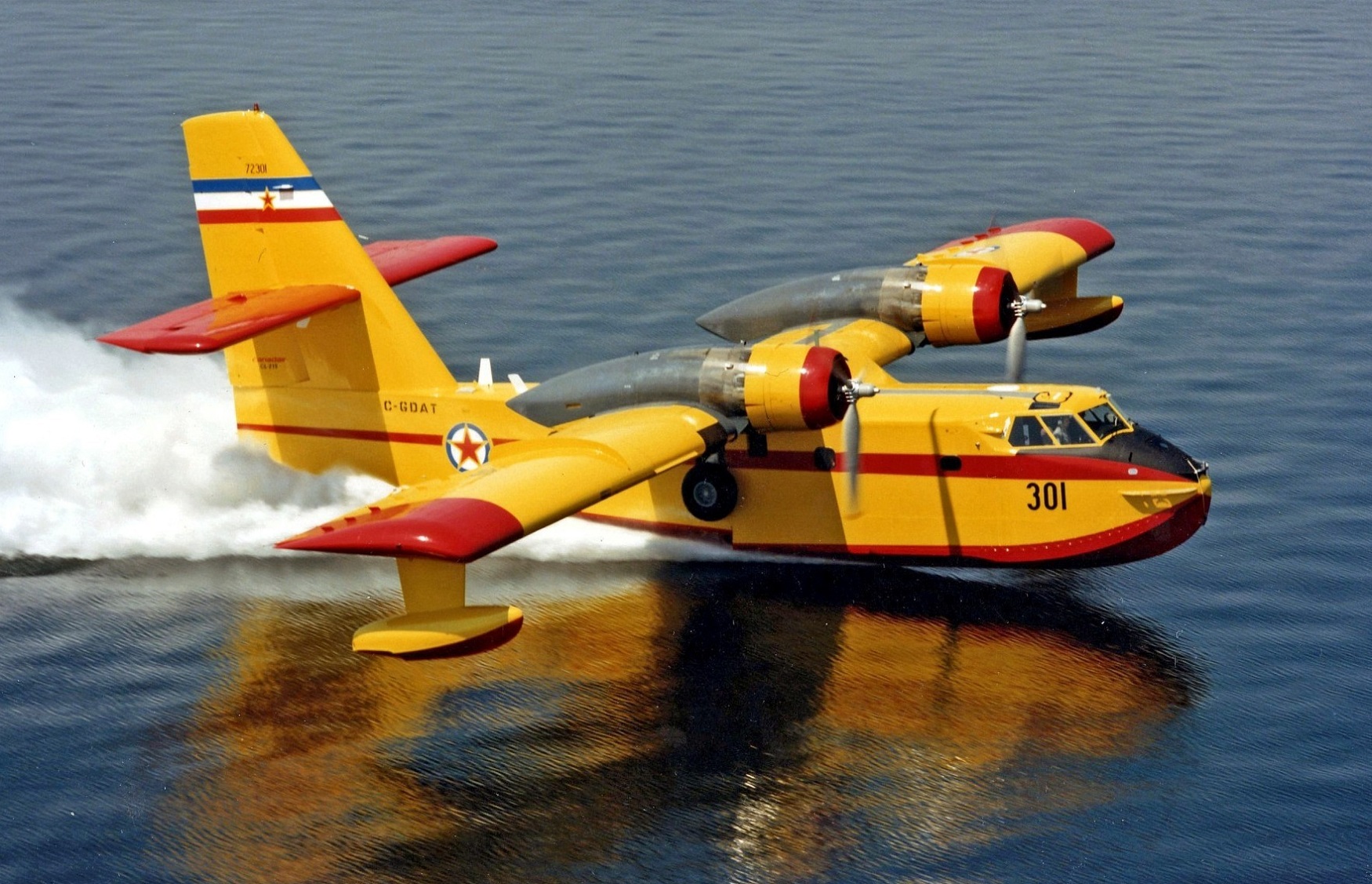
Canadair CL215 —
The CL-215 first flew on October 23 1967, and first delivery was to the French civil protection agency in June 1969. Production of batches of CL-215s continued through to 1990. Originally the subsequent CL-215T was to be a simple turboprop powered development of the CL-215, and Canadair converted two aircraft in 1989 to act as development aircraft.
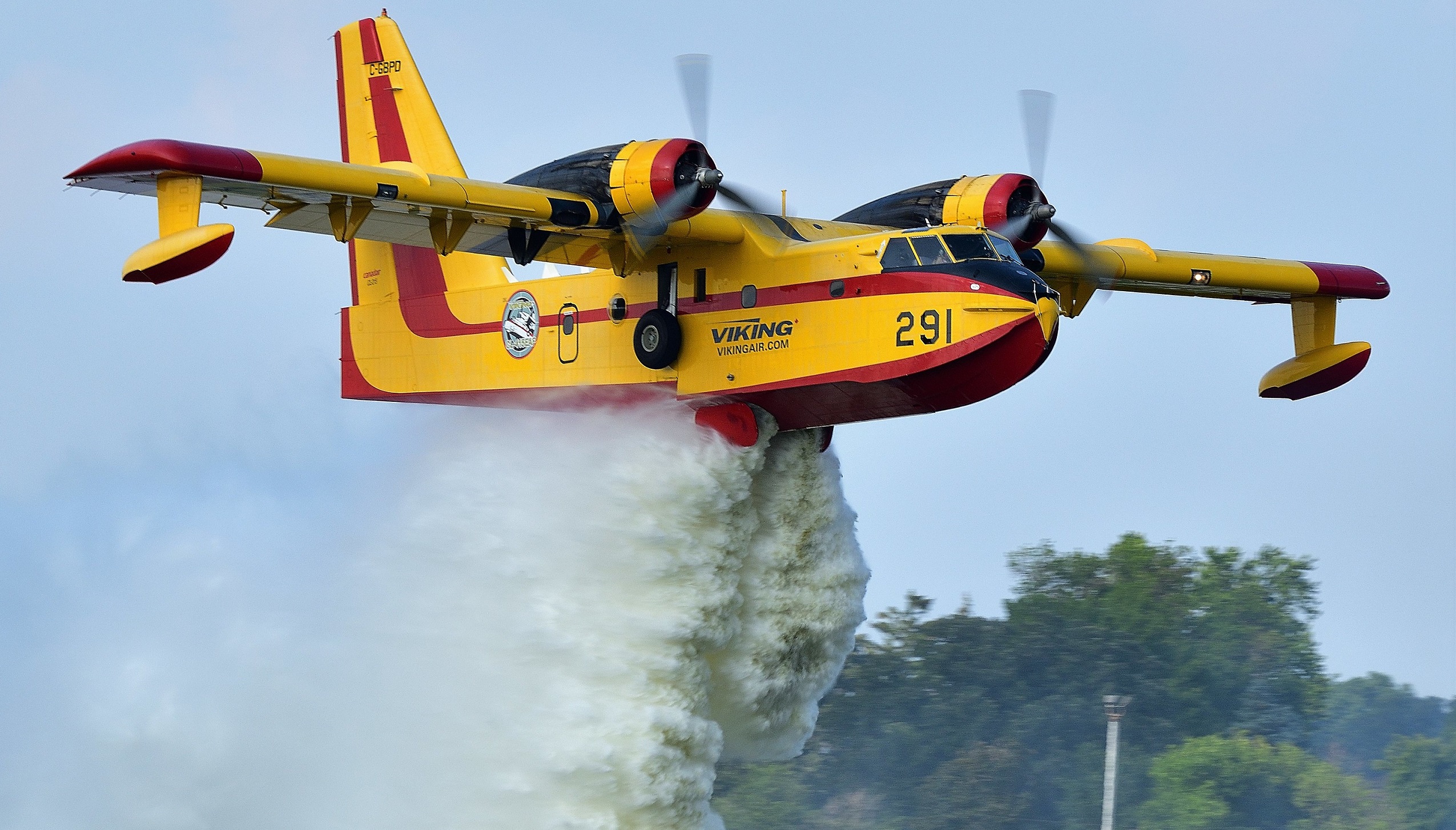
Canadair CL215 —
The Canadair CL-215 ("Scooper") was the first model in a series of firefighting flying boat amphibious aircraft built by Canadair and later Bombardier. The CL-215 is a twin-engine, high-wing.

Canadair CL215
The Canadair CL-215 is the first model in a series of flying boat amphibious aircraft designed and built by Canadian aircraft manufacturer Canadair, and later produced by Bombardier. It is one of only a handful of large amphibious aircraft to have been produced in large numbers during the post-war era, and the first to be developed from the outset as a water bomber.
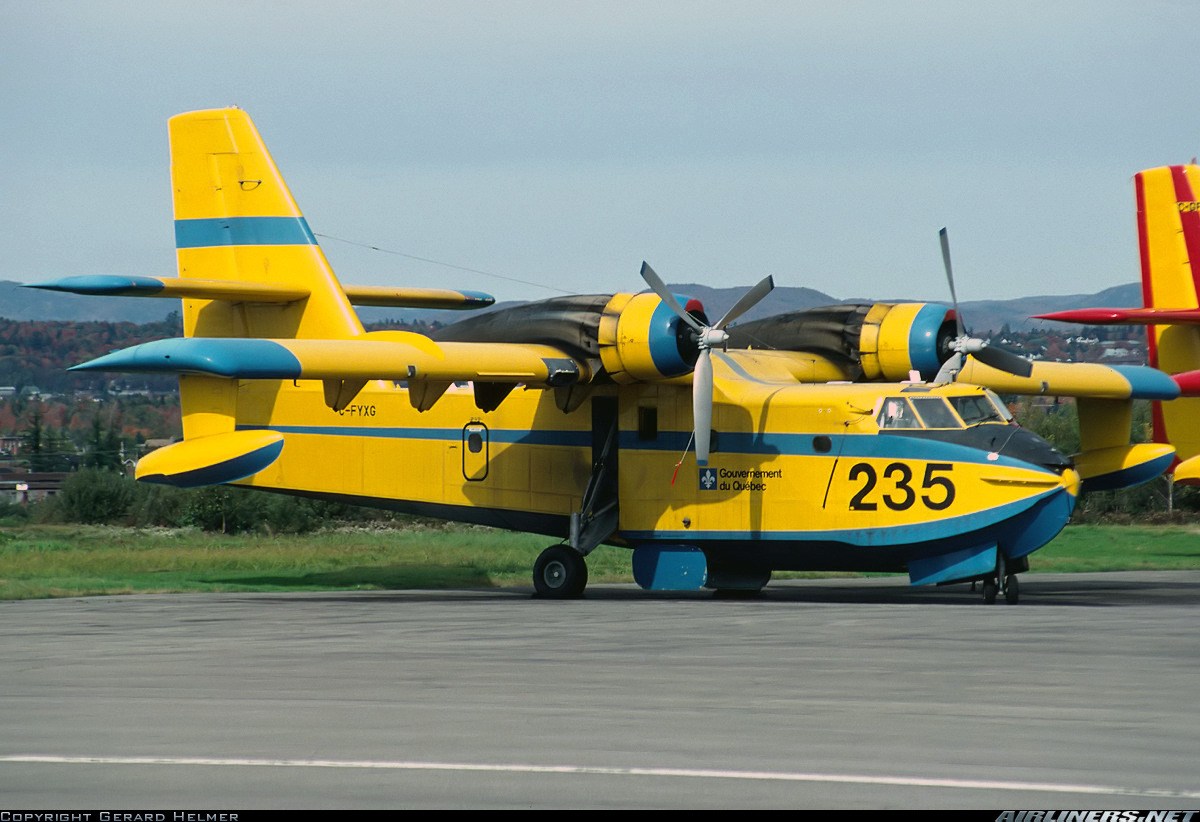
Canadair CL215I (CL2151A10) Service aérien du Québec Aviation Photo 1070172
The Scooper CL-215 is a twin-engine, high-wing, amphibious aircraft designed during the 1960s and manufactured by Canadair Ltd. It was the first aircraft developed to primarily perform aerial firefighting operations as a water bomber. The first flight took place on October 23, 1967, and production began in June of 1969 with the first CL-215.

Canadair CL215T (CL2156B11) Spain Air Force Aviation Photo 1070570
The Canadair CL-215 is a twin-engined firebomber and utility amphibious aircraft produced by the Canadian manufacturer Canadair Ltd. and later Bombardier Aerospace. In the main role as a firebomber the CL-215 is able to carry 5455 liters (1440 US-gal) water. max. Takeoff Weight.
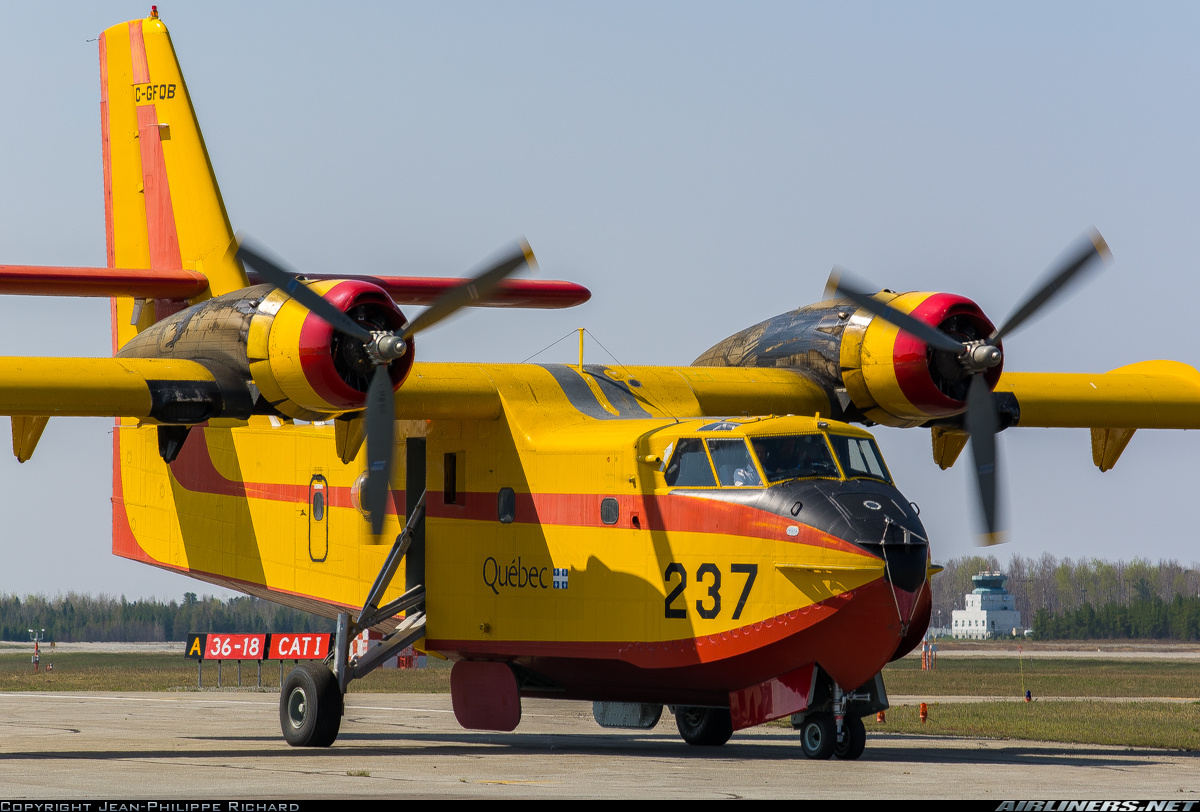
Canadair CL215V (CL2151A10) Quebec Government Aviation Photo 2831780
A Canadair CL-215 aircraft operated by the Hellenic Air Force crashed while battling a wildfire as part of firefighting operations in Karystos, Evia. The incident occurred shortly before 3 PM local time on July 25, 2023, near the village of Platanistos. Footage from the incident shows the aircraft clipping a tree with its right outboard float.